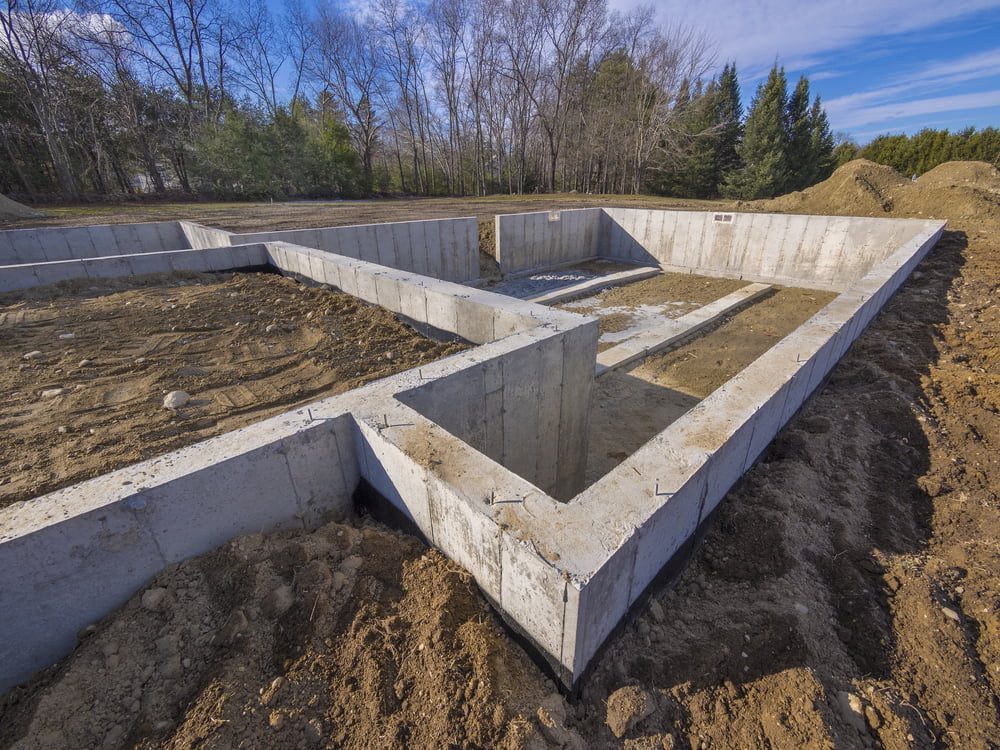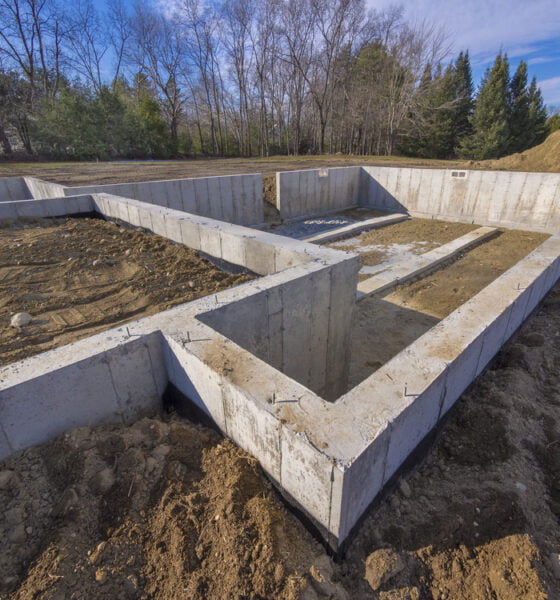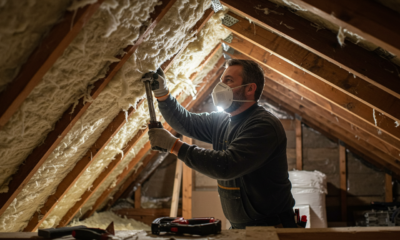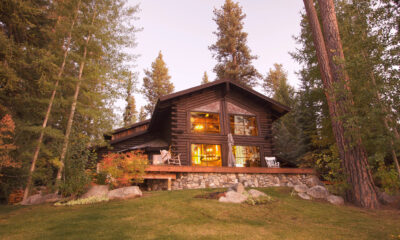

Features
Underspoken Importance of Foundations in Eco-Friendly Homes
We have talked about some of the ways to make your home eco-friendly. One factor we haven’t talked about before is the importance of its foundation.
The foundation is one of the most critical parts of any home. It is responsible for holding up the weight of your structure. The foundation of your home keeps it stable. As a new homeowner, protecting your new home’s foundation is important. Here are some helpful tips to consider.
Constructing a home requires a strong foundation made of durable materials. A study by 3M in 2021 found that 70% of homebuyers prefer using green materials for their renovation projects. The majority of these buyers are between 18 and 40 years old.
As environmental concerns increase, more buyers expect builders to use eco-friendly foundation materials during home construction. It is important to understand the role your foundation plays in making your home eco-friendly and how to design it to be as sustainable as possible.
Keep reading to learn more.
Why is Your Home Important for Making Sure Your Home is Eco-Friendly?
Are you one of the 85% of people that want to live an eco-friendlier lifestyle? You will need to literally start at home.
There are a lot of important reasons that every home needs a strong foundation. However, you may not have thought about the importance for the environment.
One of the biggest reasons is that a good foundation is key to ensuring your home lasts a long time. If your home falls apart, you will need to use a lot of natural resources and energy to replace it. This is going to be a huge impact on the planet.
A good foundation also plays an important role in insulating the house, which is important for the planet. This obviously helps improve energy efficiency and lowers the carbon footprint of your home.
How Can You Ensure Your Foundation is Eco-Friendly?
There are a variety of things that you need to do to make sure your home foundation is as eco-friendly as possible. One of the most important things is to ensure it is made with sustainable building materials.
You may not think of concrete as an eco-friendly building material, but it is surprisingly good for the environment relative to other building materials. Concrete is sustainable because it lasts for decades. 40% of homes in the US are almost 50 years old, which means they have a low environmental footprint. Additionally, concrete is 100% recyclable and reusable at the end of its life cycle. You can find out more about the eco-friendly benefits of concrete from The Ethical Unicorn.
If you’re a homeowner planning to build a prefabricated home, a concrete foundation is the most stable option. These homes are built off-site in climate-controlled facilities and delivered in completed sections to the property, making it an eco-conscious choice for those who want a fully green home.
You can also use ICFs to make your foundation eco-friendly. ICF foundations can be engineered by pouring concrete between foam panels or using hollow blocks. Eco-conscious homeowners may opt for greener composites. ICF foundations can lower energy bills by 50% and reduce noise by two-thirds compared to conventional framing materials.
Why Every Eco-Friendly Home Needs a Strong Foundation
Here are some great reasons a strong foundation is important for your eco-friendly home.
1. Keep Water Away
Water is the most common cause of foundation problems. It can seep into the soil, causing it to shift. This results in foundation settlement, cracks, and other issues. You need to direct water away from your home’s foundation. Clean your gutters regularly to prevent debris build-up. Ensure that water can flow freely through them. Clogged gutters can lead to overflowing water. It can collect around your home’s foundation, causing damage.
Make sure that downspouts are positioned away from your home’s foundation and add extensions to downspouts. They should discharge water at least five feet away from your home. This will ensure that there are no pools around your foundation.
2. Use Excavator Attachments
Excavator attachments can protect your home’s foundation. Water seepage is the leading cause of foundation damage. It weakens the soil and causes a shifting in the foundation. By using a hydraulic excavator with a specialized attachment, you can quickly and efficiently create drainage channels around your home. It is an effective way of diverting water away from the foundation.
You can use excavator attachments like augers or pile drivers to install pilings or piers. They reinforce the foundation and prevent further damage. Using these powerful tools, you can keep foundations strong and secure.
3. Ensure Proper Drainage
Proper drainage is essential to protect your home’s foundation. Poor drainage can cause water to accumulate around your foundation, leading to soil saturation and foundation damage. Ensure that your yard is properly graded so that water flows away from the foundation. You can use a French drain system to divert water away from your home’s foundation. Installing a sump pump system to collect water that may seep into your home’s foundation.
4. Maintain Consistent Moisture Levels
Inconsistent moisture levels can cause the soil to expand and contract, leading to pressure on the foundation. Maintaining consistent moisture levels around your home is essential to protect your foundation. Avoid over-watering your lawn and landscaping, as this can lead to soil saturation. The soil around your foundation shouldn’t dry completely. Dryness can make it shrink and pull away from your home’s foundation. Consider using a soaker hose to moisten the soil around your foundation.
5. Keep Trees and Shrubs Away
Trees and shrubs beautify your landscaping, but they can also pose a threat to your foundation. Large trees can absorb a lot of water from the soil. They dry it out and cause it to shrink. This can cause the soil to shift and exert pressure on your foundation. Ensure trees and shrubs are planted at least 20 feet away from your home. This distance will ensure that the roots don’t cause any damage to your home’s foundation.
6. Watch for Signs of Trouble
Look out for any signs of foundation trouble. Contact a foundation specialist immediately if you notice any cracks on your walls, floors, or doors. Ignoring these issues can lead to more significant problems and expensive repairs down the line. A foundation specialist can diagnose the issue and provide you with the best solution to fix the problem.
Protecting your home’s foundation is crucial to ensure that your home remains stable and secure for years to come. Foundation issues crop up when you least expect them. You must put in measures to protect it. Preventing foundation problems can ensure your home remains safe and comfortable.



























